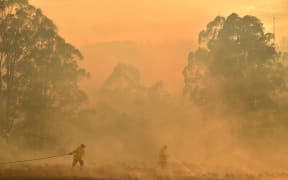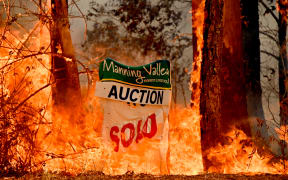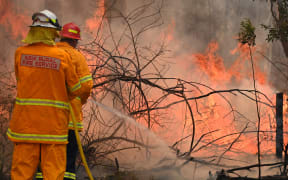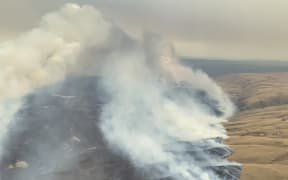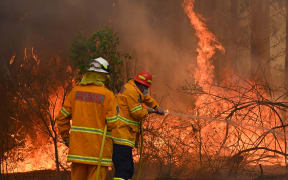Bushfires have wiped out about half the koalas living on a coastal reserve in New South Wales, experts estimated last week.
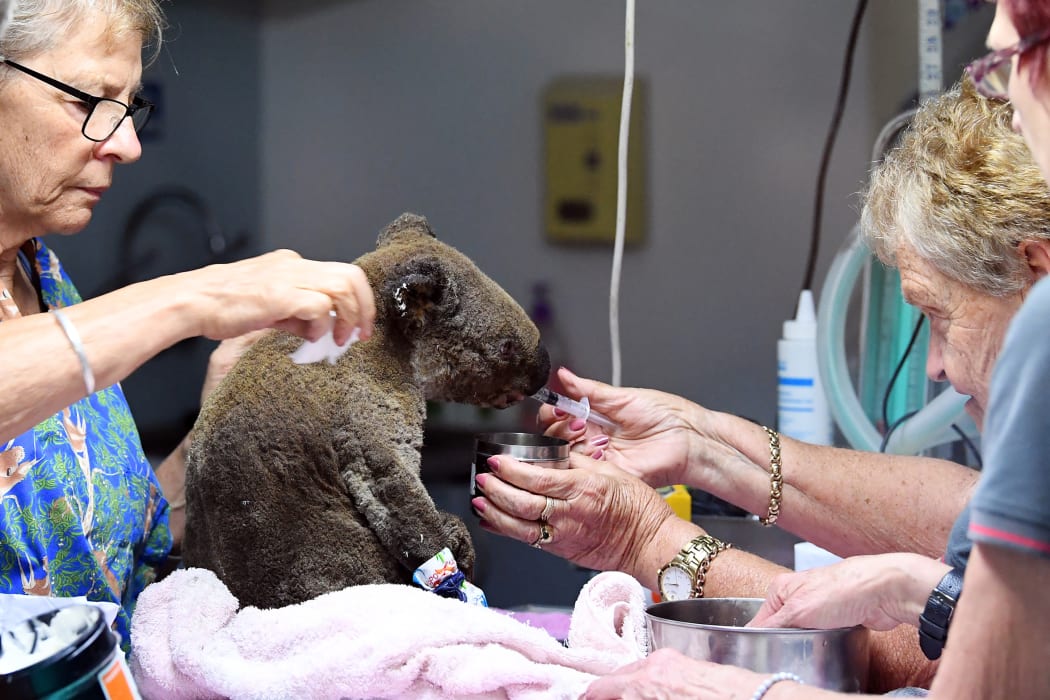
A dehydrated and injured Koala receives treatment at the Port Macquarie Koala Hospital in Port Macquarie on November 2, 2019, after its rescue from a bushfire. Photo: Saeed Khan / AFP
A fierce early start to the bushfire season brought a blaze at the Lake Innes Nature Reserve that destroyed two-thirds of the koalas' habitat last month.
About 350 koalas living on the reserve in Port Macquarie have died in the bushfires, the group Koala Conservation Australia estimates.
That compares with a total population of 500 to 600 in the reserve, said the group's president, Sue Ashton.
Port Macquarie Koala Hospital has been nursing rescued the koalas, bandaging their wounds and feeding them eucalyptus leaves and formula.
At the Port Macquarie Koala Hospital, koalas that were caught in wildfires in New South Wales in Australia are being nursed back to health https://t.co/MVMf7inP41 pic.twitter.com/9TvmFpgf72
— Reuters (@Reuters) November 8, 2019
"We look for signals of pain - teeth grinding, distress - and we just take it on a day-by-day basis," said Amanda Gordon, who leads the team of carers, adding that some of the marsupials' health problems can be hard to spot.
"Sometimes koalas seem to be doing really, really well. Their paws might be healing up but if something's going on that we can't see there's not really much we can do," said Ms Gordon, who has worked at the hospital for 15 years.
The carers estimate at least 10 days will be needed to assess the full damage to the koala population.
Population estimates for koalas, native to Australia, vary widely, from as few as 50,000 to little more than 100,000.
They dwell mostly in eucalyptus forests in eastern states and on the coastal fringes, usually living up to 20 years, carrying their young in a pouch and sleeping for up to 18 hours a day.
Warmer weather brought by climate change threatens to worsen conditions for koalas, as deforestation has narrowed habitable areas, said James Tremain of the Nature Conservation Council of New South Wales.
"Devastating bushfires are going to knock out some of these key population centers, but so also will increasing temperatures," he said, by affecting the nutrition value of the leaves that are the animals' sole food source.
"Koalas are definitely in trouble in New South Wales, but if the declines continue at the same rate as the last 20 to 30 years, koalas could be extinct in the wild by mid-century," Mr Tremain said.
-Reuters
